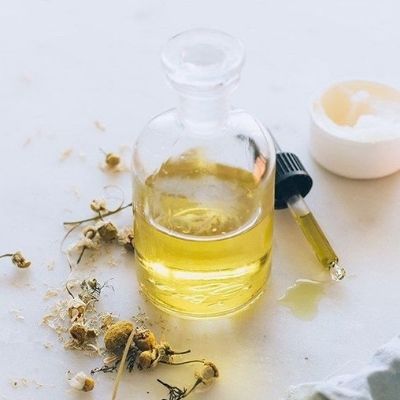Essential oils, what are they & which one is best for you

Essential oils have been used for centuries for medical and cosmetic properties, they are formed from aromatic plants and present a wide range of medical and cosmetic properties, many of which can help relieve skin conditions through anti-inflammatory and antiseptic properties among others and to protect the skin against oxidative damage and aging processes.
The use of essential oils for therapeutic benefit is know as aromatherapy. When inhaled, the scent molecules in essential oils travel from the olfactory nerves directly to the brain and especially impact the amygdala, the emotional center of the brain. These are also absorbed by the skin and for this reason we advice all our readers to be careful when using them as some essential oils when applied directly on your skin, without a carrier oil or cream, can cause irritation.
In case you do not know what skin type you have we encourage you to complete our new #skin quiz here as this will help you understand what essential oil to use based on your skin type.
Essential oils for the skin, which one to use?
If you have dry skin …
- Lavender: to balance out moisture levels in your skin, in addition it has anti-inflammatory properties.
- Chamomile: to increase moisture and reduce inflammation.
- Sandalwood: has anti-inflammatory properties in addition to bringing moisture.
If you have oily skin …
- Clary sage: helps control excess sebum and control acne. It also helps reduce the appearance of wrinkles in mature skin.
- Rosemary: has anti-inflammatory, analgesic properties & helps control excess sebum
- Frankincense, helps with oily and acne-prone skin while promoting anti-aging properties . In addition it helps tighten and brighten your skin.
- Geranium: helps balance skin oils and maintain hydration.
- Neroli: helps balance skin oil without drying out the skin
If you have sensitive skin …
- Frankinsence: benefits include the ability to strengthen skin and improve its tone, elasticity, and defense mechanisms against bacteria or blemishes.
- Lavender : has anti-inflammatory properties which make it great for soothing and healing skin that’s irritated or reddened.
- Sandalwood: has anti-inflammatory properties which help calm down acne inflammation and redness. It also has antibacterial and antiseptic properties that help to fight off acne-causing bacteria.
If you have acne prone skin …
- Lemon: has anti-inflammatory properties while it also helps fight free-radicals.
- Lemongrass: It helps remove excess dead skin cells and has anti-inflammatory and anti-microbial properties.
- Tea tree: anti-septic and anti-inflammatory properties
- Cinnamon,: anti-inflammatory & anti-oxidant properties.
If you have mature skin …
- Frankinsence: It’s ultra nourishing for dry and mature skin.
- Rose: contains antioxidants like vitamin A and C it helps promote skin cell regeneration. It protects the skin from free radicals, strengthening skin and its structure. Rose helps to balance the hydration of the skin keeping the skin soft and supple.
- Jojoba: contains natural fatty acid content and helps repair the top layers of the skin.
Before using essential oils, seek input from your dermatologist, especially if you have any underlying conditions like eczema, rosacea, or psoriasis. Stop using essential oils immediately if you experience any negative reactions.
